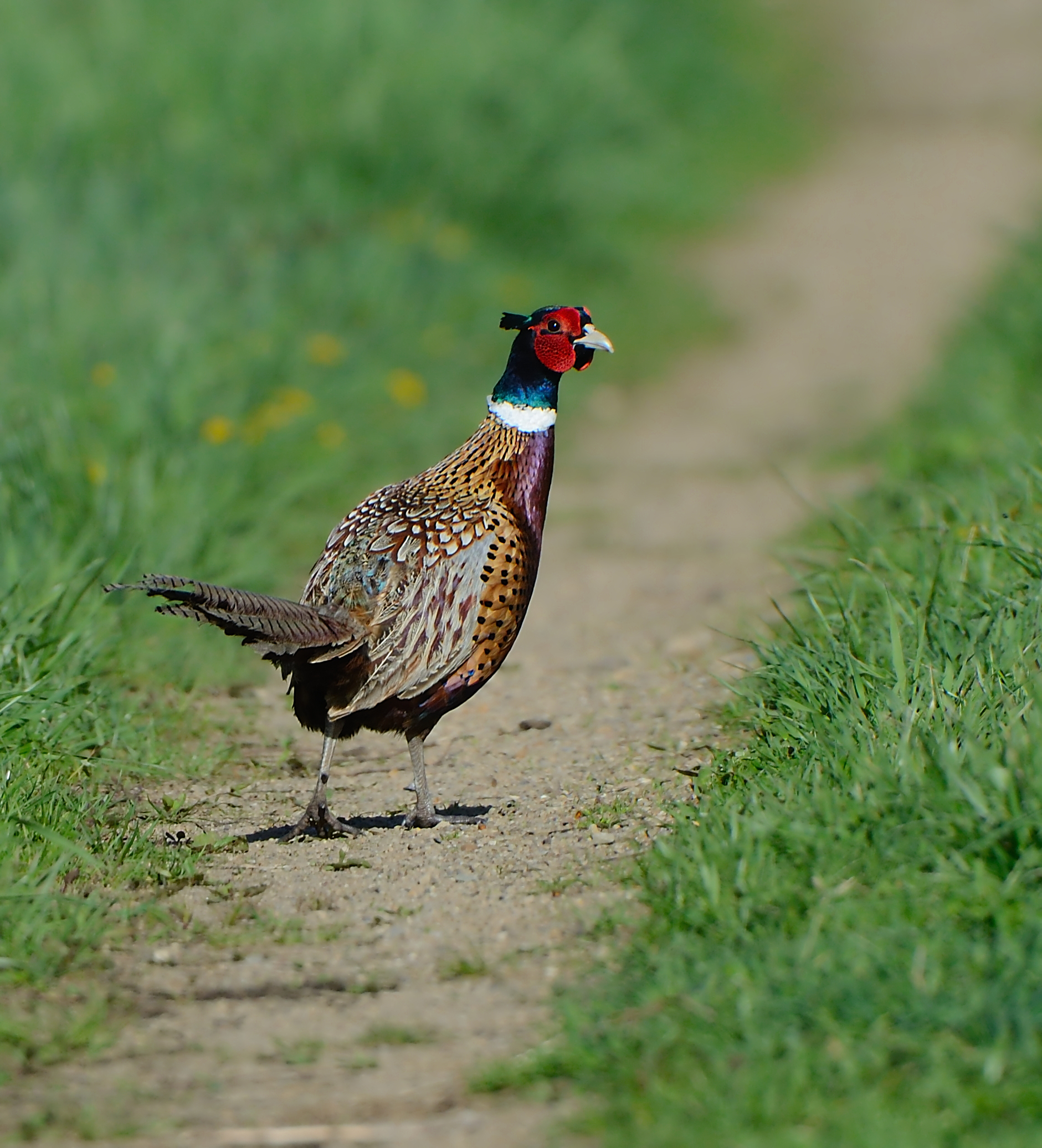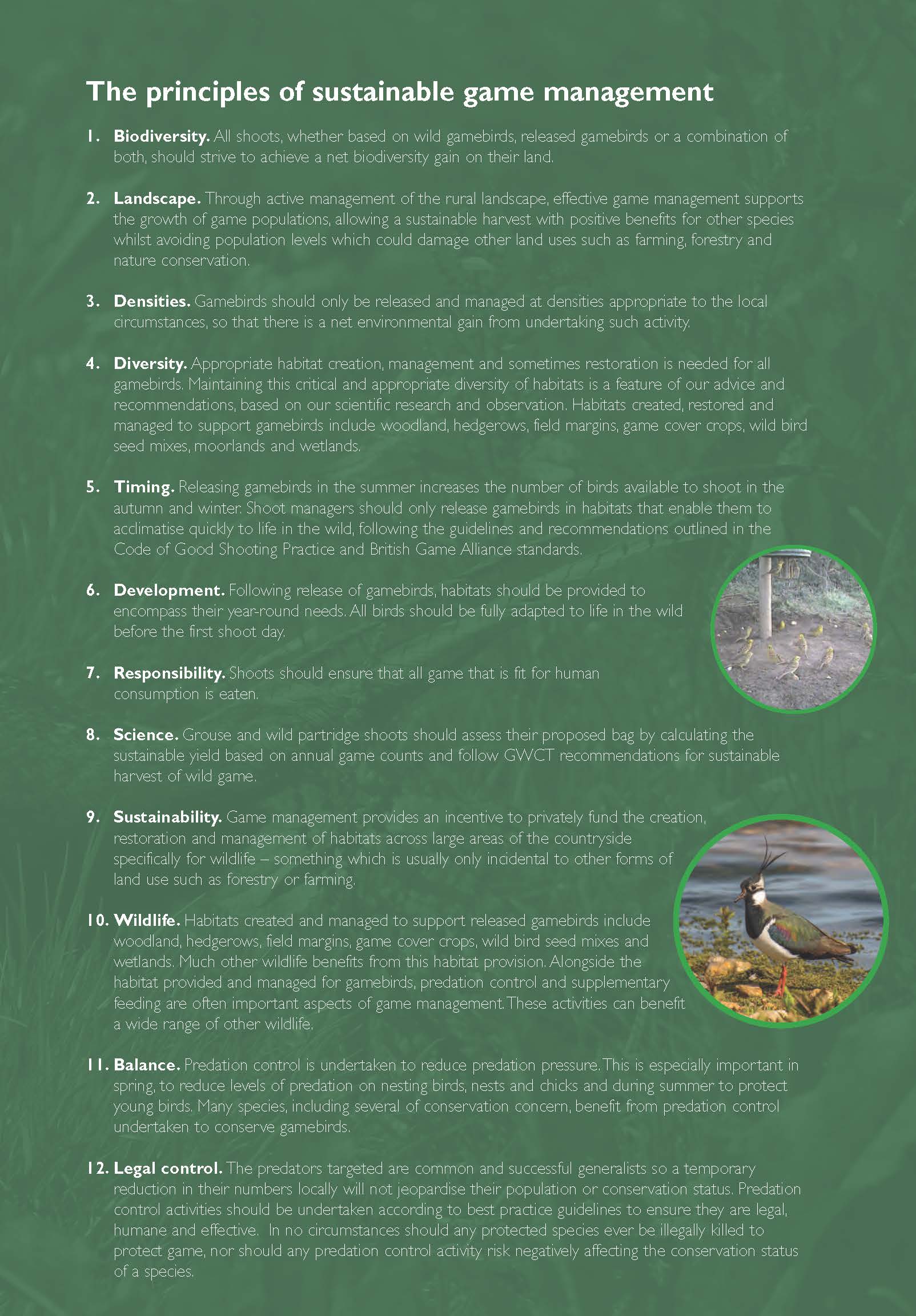New ‘Principles of Sustainable Gamebird Management’ aim to boost Britain’s biodiversity
“Biodiversity net gain is embedded in Defra’s 25 Year Environment Plan and research shows that sustainable gamebird management can deliver that”
New ‘Principles of Sustainable Gamebird Management’ aim to boost Britain’s biodiversity
With the pheasant season starting on 1 October, leading conservation charity the Game & Wildlife Conservation Trust (GWCT) has launched 12 key principles to support wildlife recovery alongside sustainable gamebird management.
The guidelines provide a framework that works alongside the aims of the government’s 25 Year Environment Plan, including the creation, management and restoration of habitat specifically for wildlife.
Decades of GWCT research shows that when done well, all forms of game management, including shoots where birds are released, can deliver a net biodiversity gain and the organisation argues that this is what all shoots should aim for.
In recent weeks, conservation bodies have called for action after a "lost decade" of nature conservation and concerns that nature is “in freefall”. These principles outline how good game management could be part of the solution.
“Biodiversity net gain is embedded in Defra’s 25 Year Environment Plan and research shows that sustainable gamebird management can deliver that”, notes Dr Roger Draycott, the GWCT’s director of advisory and education. “We hope these provide not just practical guidance for game managers and participants in game shooting but broaden the discussion about practical land use for conservation organisations, Government and the general public”.
The principles were developed with the support of other organisations and, vitally, the shoots and shooting community who need to follow them. Draft principles were written by the GWCT in autumn 2019, before being discussed at 19 private shoot briefing meetings, each with an audience of approximately 30 shoots, including some large commercial shoot operations.
An online consultation via the GWCT website gathered over 340 responses, with over 90% support for the principles. This groundwork was vital according to Roger Draycott: “Feedback from the meetings with shoots was very helpful. The sector needs to self-regulate effectively and, by securing support for the principles, we have confidence that these will be well adopted”.
The principles are based on agreed UK industry codes of practice, such as the Code of Good Shooting Practice and British Game Alliance standards, the UK legislative framework, (e.g. Wildlife and Countryside Act, 1981, Animal Welfare Act 2006 and the Wildlife and Natural Environment Act 2011) and align with international guidelines on sustainable use of natural resources, including the Bern Convention and the International Union for Conservation of Nature (IUCN).
Those wishing to show their consideration for the responsible game management are urged to follow almost 10,000 others in taking the GWCT’s free Accredited Game Shot test.
The test aims to give participants confidence in asking appropriate questions of their own shoot or the ones they visit, to appreciate the ways in which a gamekeeper is a working conservationist, to engage in controversial issues affecting shooting and explain the ways legislation and regulation covers shoot management. The test is available at www.gwctknowledge.com.
You can read the principles in full at www.gwct.org.uk/principles
Press release distributed by Pressat on behalf of Game & Wildlife Conservation Trust, on Tuesday 29 September, 2020. For more information subscribe and follow https://pressat.co.uk/
Pheasant Partridge Biodiversity Wildlife Game Nature Conservation Shooting Sustainability Charities & non-profits Environment & Nature Farming & Animals Leisure & Hobbies Men's Interest
You just read:
New ‘Principles of Sustainable Gamebird Management’ aim to boost Britain’s biodiversity
News from this source:




